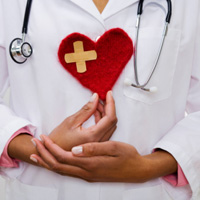The amount of online information on diabetes is staggering. The search engines Google and AltaVista each brought up thousands of entries. More than 500 Web sites are devoted to the subject. Research is ongoing. New products for diabetics appear almost daily. How does one keep up with the explosive expansion of cyberspace?
Read more about Diabetes Help Online …
Category: Physical health & diseases
Can't Fall Asleep?
It’s nearly midnight in Apartment 3B, and Rose still cannot fall asleep, even though she went to bed at 10:30. When she finally drifts off, it is around 12:30 a.m. For the next few hours Rose will sleep lightly and poorly before her alarm goes off at 6:30, awakening her so she can get ready for work.
There are millions of people just like Rose. They do not share the delight of the prophet Jeremiah, who said, “I awoke and looked around. My sleep had been pleasant to me” (Jeremiah 31:26, NIV).*
The inability to get a good night’s sleep is a serious problem. Even one night of insufficient or restless sleep can result in irritability and inability to concentrate properly. Various studies indicate that establishing a chronic sleep debt can depress the immune system, causing greater susceptibility to illness and depression. And a lack of sleep can also be dangerous. The Department of Transportation estimates that up to 100,000 motor vehicle accidents a year occur because drivers become drowsy or fall asleep at the wheel. Yet, like any problem, sleep disorder can be managed and conquered. Here are a dozen ways to get a better night’s sleep.
Read more about Can't Fall Asleep? …
Noise: The Hidden Danger
 When I landed my new job I was given rigorous safety training. I used high-speed machinery that could slice off a finger before I could hit the off switch. It could grab my tie and drag me into the machine in seconds. What we didn’t realize, until the government ran some tests, was that this machinery was slowly destroying our hearing. Earplugs became mandatory (even for the macho guys who made fun of them).
When I landed my new job I was given rigorous safety training. I used high-speed machinery that could slice off a finger before I could hit the off switch. It could grab my tie and drag me into the machine in seconds. What we didn’t realize, until the government ran some tests, was that this machinery was slowly destroying our hearing. Earplugs became mandatory (even for the macho guys who made fun of them).
About 10 million Americans suffer partial hearing loss from noise. Few of them are jet mechanics or rock stars. They are victims of a hidden health danger that is found in many homes, schools, and offices. The reason experts know this danger exists for all of us is that hearing loss and permanent ringing in the ears is being reported at younger ages. A recent study shows that 46 percent of the children responding experienced ringing in the ears. “Once you lose your hearing, it never comes back,” says Malvina Levy, clinical audiologist at the San Francisco Hearing and Speech Center. What seems like a normal level of sound can be dangerous because of the way ears process sound.
Tired of Being Tired?
 Randi Rossman battled fatigue for more than 15 years without ever suspecting its cause. “It was bad–there was probably a day or two a week that I just lost, where I could not move out of bed. Then if I actually moved out of bed, I’d have `brain fog,'” says Rossman, 40. Although she had asked doctors about her continual tiredness before, she says she eventually gave up because so many attributed her symptoms to stress or suggested that she seek counseling. “I lived with it for so long, and was told for so long that it was stress or me being crazy, that I didn’t let many people know that I was dealing with it,” she explains.
Randi Rossman battled fatigue for more than 15 years without ever suspecting its cause. “It was bad–there was probably a day or two a week that I just lost, where I could not move out of bed. Then if I actually moved out of bed, I’d have `brain fog,'” says Rossman, 40. Although she had asked doctors about her continual tiredness before, she says she eventually gave up because so many attributed her symptoms to stress or suggested that she seek counseling. “I lived with it for so long, and was told for so long that it was stress or me being crazy, that I didn’t let many people know that I was dealing with it,” she explains.
Read more about Tired of Being Tired? …
Human Papillomavirus and Cervical Cancer
Cervical cancer is the second most common form of cancer among women and one of the leading causes of early death in women worldwide. Here in the United States, 14,500 cervical cancer cases are diagnosed each year and 4,800 women die as a result of the disease. Cervical cancer deaths can be prevented with early detection and later initiation of sexual activity: the earlier the diagnosis and treatment, the higher the survival rate.
Women and Heart Disease: Are You at Risk?
 Even when the cardiologist gave Lynne Stewart her lab results, this 54-year-old teacher was convinced that she hadn’t had a heart attack. “A heart attack? That’s a `man’s disease.’
Even when the cardiologist gave Lynne Stewart her lab results, this 54-year-old teacher was convinced that she hadn’t had a heart attack. “A heart attack? That’s a `man’s disease.’
I had a backache, not chest pains. How could that be a heart attack?”
Carmen, 49, reacted the same way when she awoke only to find herself in the coronary care unit (CCU) of the local hospital. “How could I have had a heart attack? I’m a middle-aged woman, not an older man. I had no signs or symptoms.”
Read more about Women and Heart Disease: Are You at Risk? …
The Sounds of Music
Have you ever sat somewhere and marveled at how quiet it was? You are acutely aware of sound because it is so unusual to be without noise. We always hear hum from machines, the rumble of traffic, a plane, or other people talking. Modern noise pollution is subtle, inconspicuous, and more dangerous than we realize.
What You Need to Know About Heart Attacks
My high school teammate Tommy called to tell me that the father of one of our friends had died at home. I was devastated by this news. As a typical teenager, I believed that we and all those around us were immune to the misfortunes of sickness and disease. Our friend’s father was 35 years old and had no history of cardiovascular disease. We later learned that the day before he died he had developed aching in his left arm and slight nausea, but believed this to be only the fatigue of hard work. He had mistaken cardinal symptoms of myocardial ischemia (not getting enough oxygen to the heart muscle) for minor aches and pains.
Read more about What You Need to Know About Heart Attacks …
Sleep Connection
Left untreated, sleep disorders can reduce your daytime productivity, increase your risk of accidents, and put you at risk for illness and even premature death.
Cancer risks during each decade of life – Women
Women are diagnosed with more new cases of cancer each year than men. However, men have more cancer mortality. For both genders a lot of these cases are preventable. The American Cancer Society estimates that out of the 555,000 Americans who will die of cancer this year, approximately 170,000 will die because of tobacco use, and 19,000 will die of causes related to excessive alcohol consumption. In addition, approximately one-third of the cancer deaths are related to poor nutrition, obesity, inactivity, and other lifestyle factors and could be prevented. A healthy lifestyle lowers your lifetime risk of cancer dramatically. Research suggests that only about 20 percent of all cancers are caused primarily by genetic factors.
The most common-occurring cancers among women (other than skin cancer) are those of the breast, lung, and then colon. The order changes when you consider cancer deaths. In females, lung cancer is the leading cause of cancer death, followed by breast and then colon cancer. Although most people fear cancer, few people realize that an individual’s risk of certain types of cancer changes with each decade of life.
20s
Most women during their 20s are thinking primarily about their career and finding a life mate. Cancer is usually not a primary concern. However, cervical cancer is a foremost risk during this decade. Most women are familiar with the Pap test, the most widely used screening test for cervical cancer. It can detect precancerous changes in cervical cells; these can be treated before aggressive cancer develops. The American Cancer Society recommends annual Pap smears to screen for cervical cancer when women become sexually active or at age 18 (whichever comes first).
Read more about Cancer risks during each decade of life – Women …


